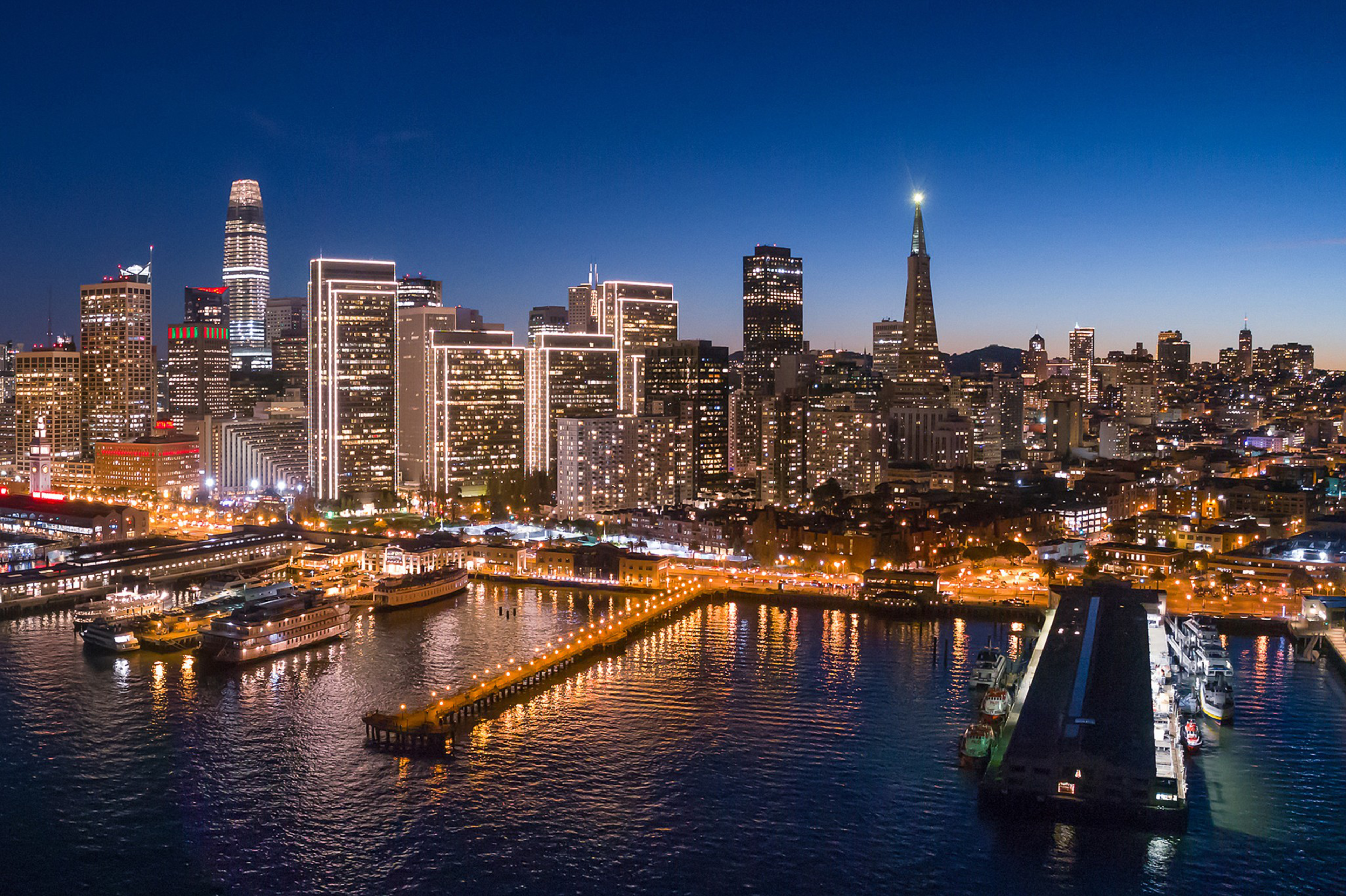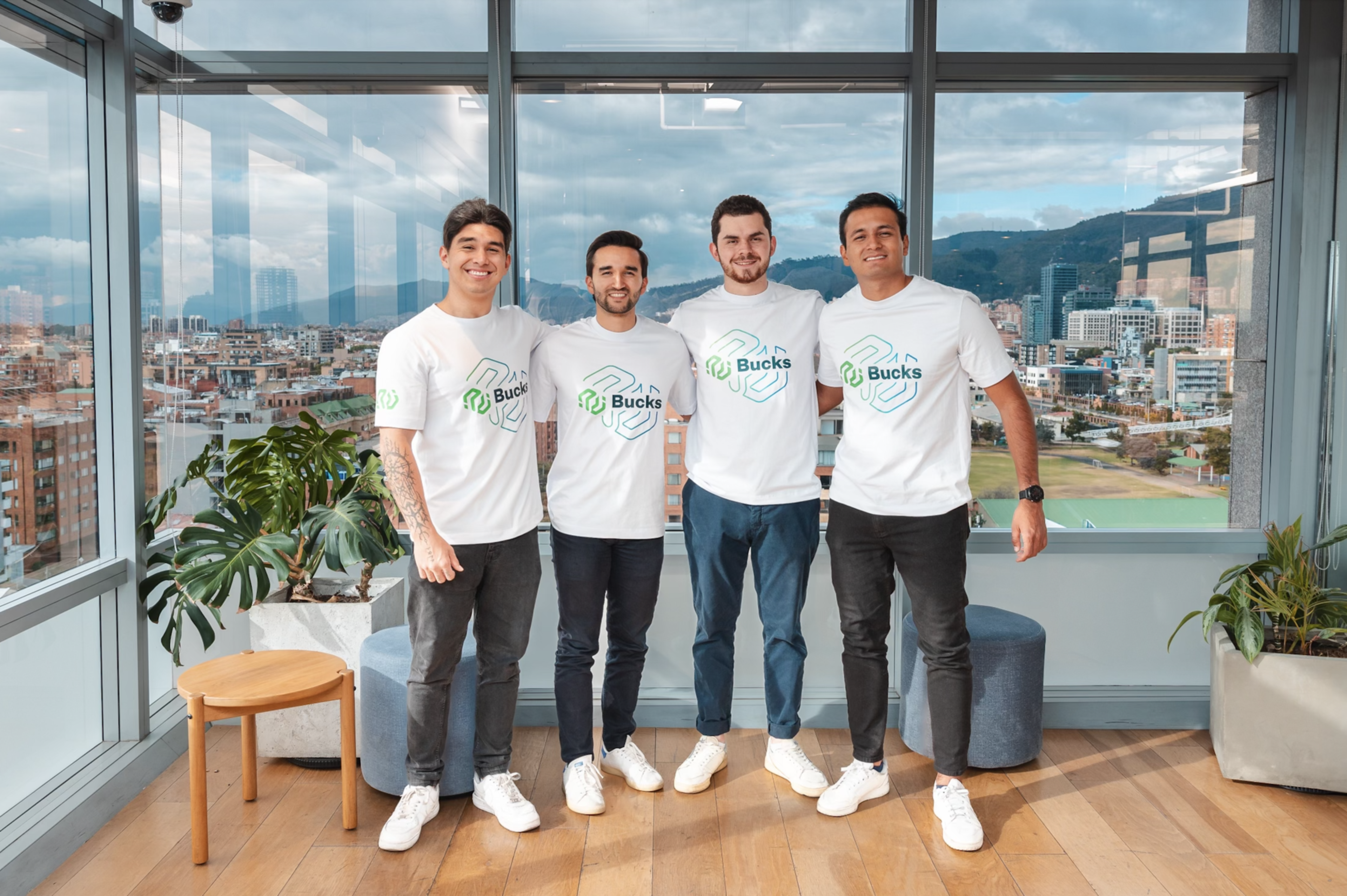Donald Trump has vowed to close borders and deport millions. But you wouldn’t have known that from attending an immigrant founders event in the Financial District two days after the presidential election.
In fact, the mood at the packed evening event at Microsoft’s AI hub was effervescent. Founders from around the world networked over pizza and LaCroix, discussing their recent or imminent moves to San Francisco and Trump’s promises to supercharge the economy.
“Everywhere else, you’re a weird person who wants to start a company,” said Emmanuel Martes, who is in the process of moving his fintech company to San Francisco from Bogotá, Colombia. “Here, everyone is building.”
Ben Su, a former lawyer who is building an AI lawyer for startups, spoke with fellow Canadian entrepreneurs about relocating to the Bay Area.
“We’re hitting the ceiling in Canada, and the mecca of the startup world is in San Francisco,” Su said.
Last year, more than 50% of global venture funding for AI startups went to companies in the Bay Area, to the tune of $27 billion, according to an analysis from Crunchbase (opens in new tab). Meanwhile, all startups across Canada raised less than $5 billion (opens in new tab).
Attitudes about San Francisco have reversed since the pandemic, when remote work and doom-loop fears drove white-collar workers out of the region. As excitement over AI crescendoed last year, many observers rolled back prognostications that the tech capital of the world was dead. Entrepreneurs boomeranged back (opens in new tab), giving up lower taxes and spacious quarters in Oregon and Montana for a jam-packed schedule of nightly hackathons, demos, and networking events in San Francisco.

Now, a new cohort of techies is arriving: founders from outside the U.S. Like their predecessors in previous tech booms, they say San Francisco is second to none as a location for building their companies. These founders are themselves a bellwether that the AI boom is well underway, with San Francisco as the epicenter.
“It’s nothing new for San Francisco, except that maybe we feared for a few years that it was gone,” said Lee Edwards, a partner at Root Ventures who invests in developer tools and applied AI, noting that many of today’s Silicon Valley tech leaders immigrated to the U.S. in the 1990s and early oughts. “But now it’s back.”
Edwards traces the inflection point to the end of 2022, when OpenAI released ChatGPT 3.5 to the public, democratizing the use of generative AI. Many who tinkered with the software then are founders turning the technology to various industries and tools, Edwards noted.
“I’m always talking to a lot of founders who are thinking of moving to San Francisco, and now it’s really happening,” he said.
Meet the movers
When Chris Saad, a serial entrepreneur and former Uber executive first moved to San Francisco from Australia in 2009, it was for one simple reason: “If you want to make a blockbuster movie, you go to L.A., and if you want to build a blockbuster startup, you go to San Francisco and Silicon Valley.”
After founding a handful of companies in the Bay Area, Saad moved back to Australia during the pandemic. But a few months ago, he decided to return.
This time, Saad is using the city as a home base for his international consulting business and spending his days in semi-retirement hanging out with the tech world’s boldest and brightest. “There’s nowhere in the world to do that but San Francisco,” he said.

Saad advises companies from his home office, with its views of the San Francisco Bay and SoMa, itself a neighborhood in recovery.
He coaches entrepreneurs in Europe, Australia, and across the U.S. on how to adopt “Silicon Valley thinking” in scaling their businesses. That means encouraging clients to visit, if not move to, the Bay Area. “If you want to maximize your probabilities,” Saad regularly tells founders, “hang out where all the capital is, where all the builders are, where the future is.”
For some clients, Saad has become a Silicon Valley “Sherpa,” navigating their move across oceans, he said. “They know there is some magic here they need to tap into.”
Martes picked up on that energy as soon as he arrived last month from Colombia. “You come here and see autonomous cars driving around the city, and you think, ‘Am I thinking big enough?’” he said.
Martes and his co-founders began building Bucks (opens in new tab) six months ago and now have 15 employees based in Bogotá. But they quickly realized the company’s ambitions were bigger than the Colombian ecosystem could support.
“I told my co-founders, ‘We have to go to San Francisco,’” Martes said, crediting his favorite podcast, “Pivot,” for pushing him to think about the move. “Scott Galloway says it’s better to be someone average in San Francisco or New York than the best somewhere else.”
He and a co-founder rented a downtown WeWork space to lay the groundwork for an eventual move stateside.
That co-working space at 44 Montgomery St. has become a port of entry for founders moving to San Francisco from overseas. Over lemon water and table tennis, founders from Europe, Asia, and the Americas exchange advice about moving their companies across borders.

While not all are members of Y Combinator, the startup accelerator led by Garry Tan, many felt drawn to San Francisco after his call for founder participants to relocate, emphasizing the proximity to potential customers and partners.
Nearly 50% of all Big Tech engineers and 27% of startup engineers are located in the Bay Area. San Francisco AI and machine-learning startups are also the beneficiary of a major chunk of early-stage VC rounds, according to research from venture fund SignalFire (opens in new tab).
With all the momentum working in favor of San Francisco founders, immigration attorneys warn that Trump may be poised to once again attack legal immigration.
But these founders, many of whom are on high-skilled work visas or have active applications, are undeterred. In fact, some say that Trump’s promises to deregulate and cut taxes will accelerate deal activity, unlocking more capital for venture capitalists to invest in their startups.
“As soon as we get the visa, we’re packing our bags,” Martes said. “I’m coming to SF.”
